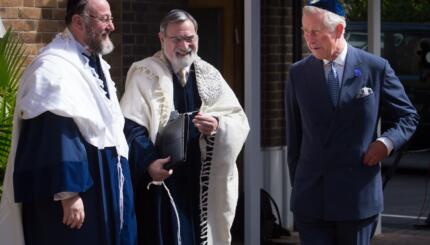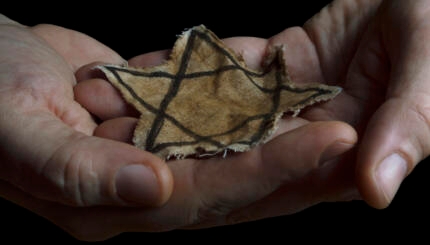The other night I went to an Emerging Jewish Writers panel/reading as part of the Steinhardt Jewish Heritage Festival. The panel was moderated by Forward editor Alana Newhouse and featured Shalom Auslander, Jennifer Gilmore, Aaron Hamburger, and Rachel Kadish.
Kadish read from her novel Tolstoy Lied, in which the protagonist, Tracy Farber, grapples — broadly speaking — with the famous first line from Anna Karenina: “Happy families are all alike; every unhappy family is unhappy in its own way.” In other words: Is happiness, fundamentally, uninteresting?
But Kadish’s remarks before her reading raise another question: Is happiness, fundamentally, un-Jewish?
Kadish discussed her interest in memory, quoting the old joke that the opposite of Alzheimer’s is Jewish, and then she said something like: “I’m interested in memory, which means I think a lot about tragedy.” Perhaps, this is something Kadish explores in Tolstoy Lied, but it’s interesting that when we, as Jews, remember, we remember all the bad things — the tragedies. Shalom Auslander echoed this in his reading:
On Purim, we remember how the Persians tried to kill us. On Passover, we remember how the Egyptians tried to kill us. On Hanukkah we remember how the Greeks tried to kill us.
Are we Jews really this morbid?
This isn’t just a theoretical question. It’s really bothering me. If I had a friend who was obsessed with the past, but who only thought about the bad things that happened in the past, I’d push him into therapy. I’d consider the tendency pathological.
Do we as a community suffer some sort of psycho-cultural pathology?
Now, you might think this is obvious. You might say: This is Jewish history. A history of tragedy followed by tragedy. But let’s face it, before modern liberalism acknowledged basic human rights and before modern medicine gifted us longer healthier lives, life sucked for everyone. The Polish peasants might have made life miserable for us, but it wasn’t like they were all living on Park Avenue.
I guess the question is whether other ancient peoples remember the past in other ways and respond to tragedy in other ways.
So do they? I don’t know. Help me out here, guys. Do we need one big family therapy session?
I hope not. I’m pretty sure my HMO won’t cover it.
Hanukkah
Pronounced: KHAH-nuh-kah, also ha-new-KAH, an eight-day festival commemorating the Maccabees' victory over the Greeks and subsequent rededication of the temple. Falls in the Hebrew month of Kislev, which usually corresponds with December.


